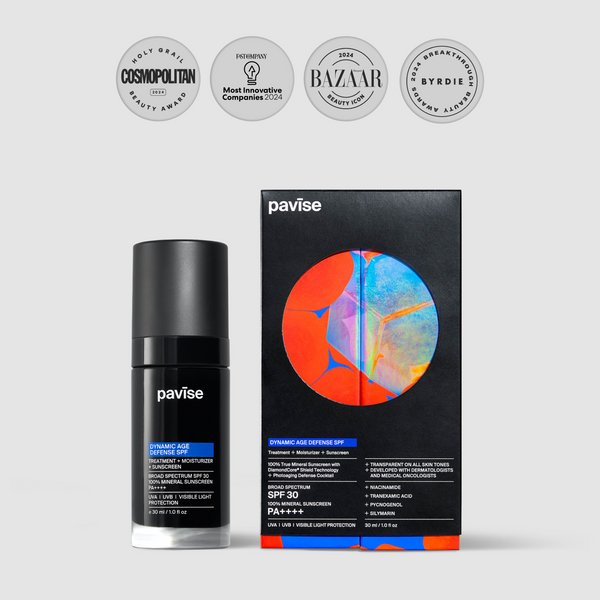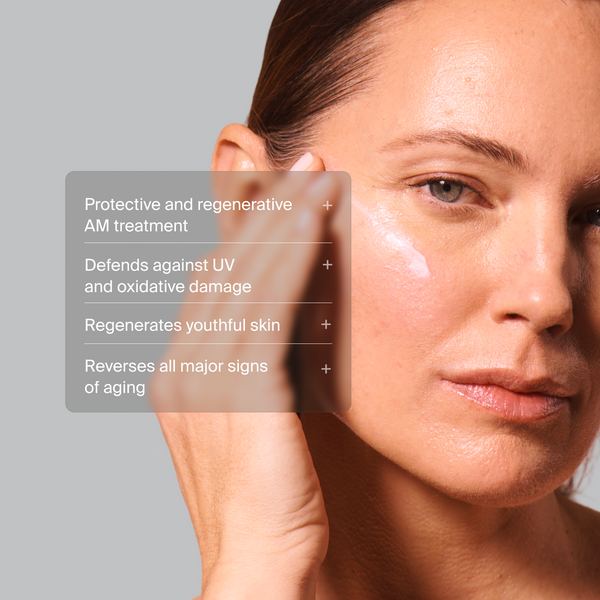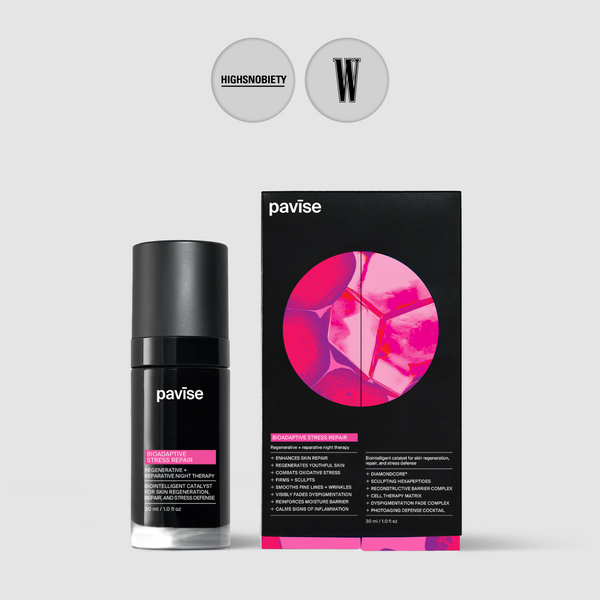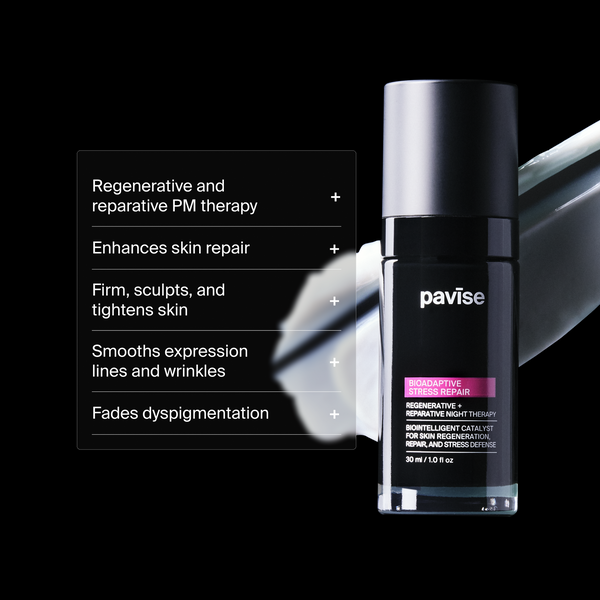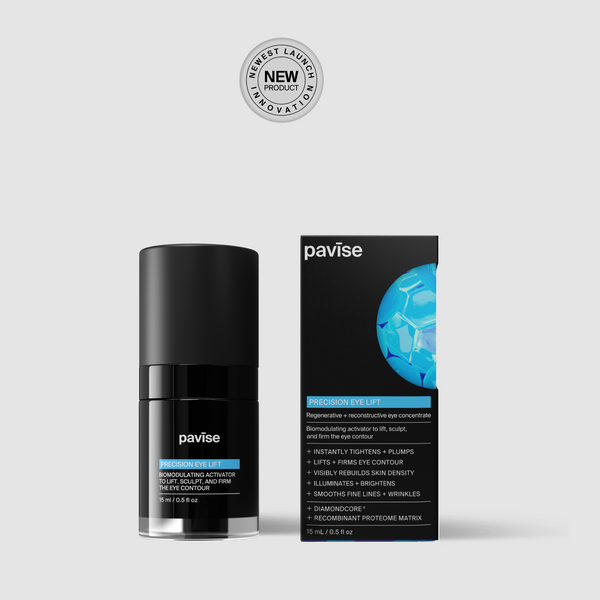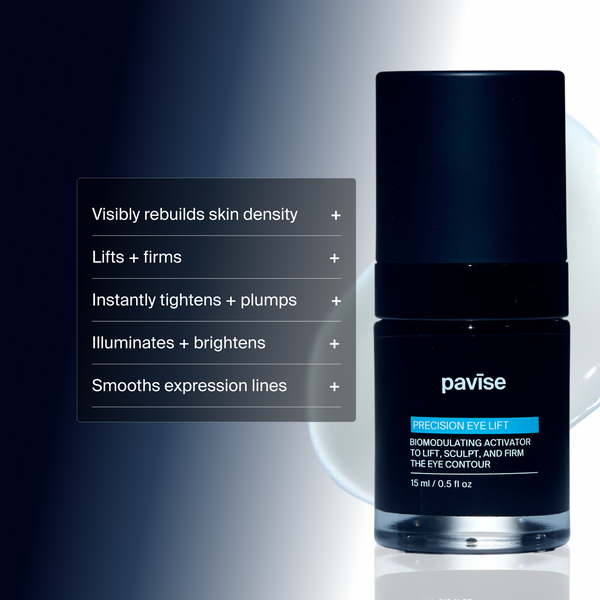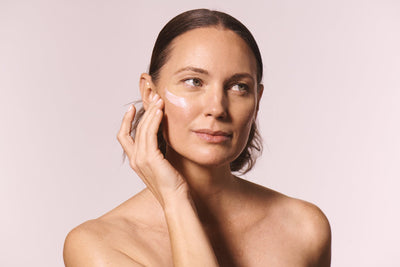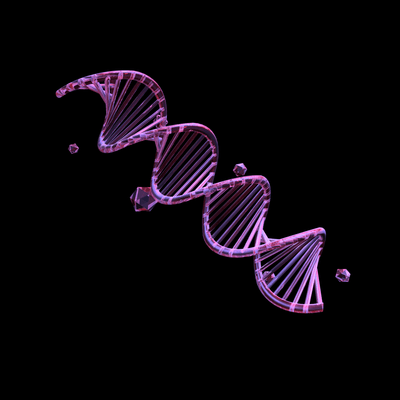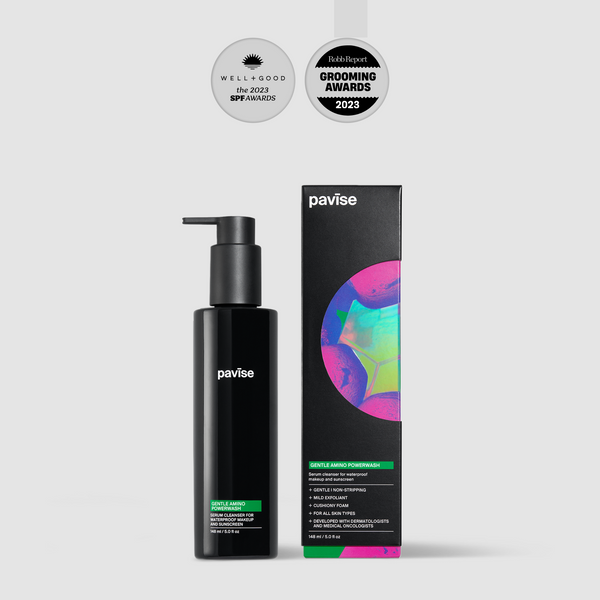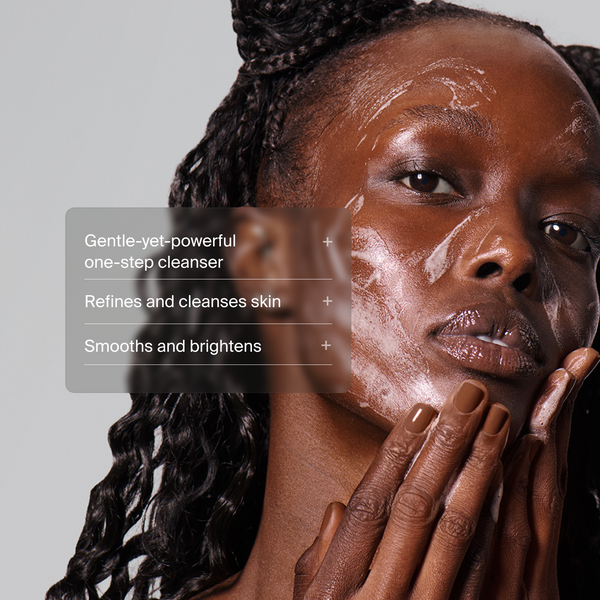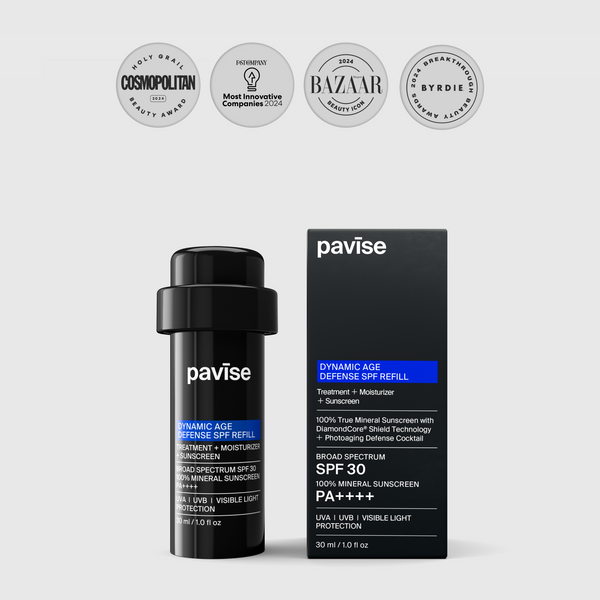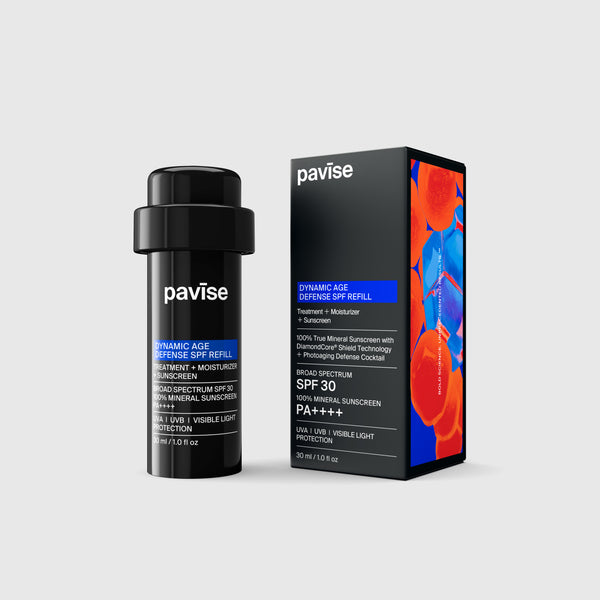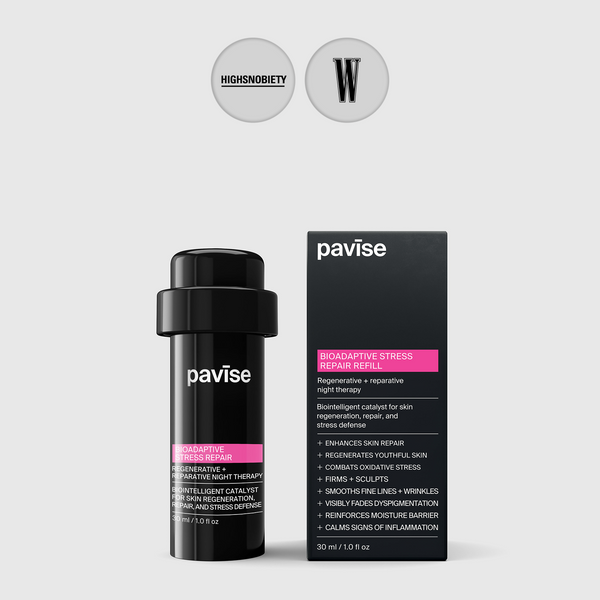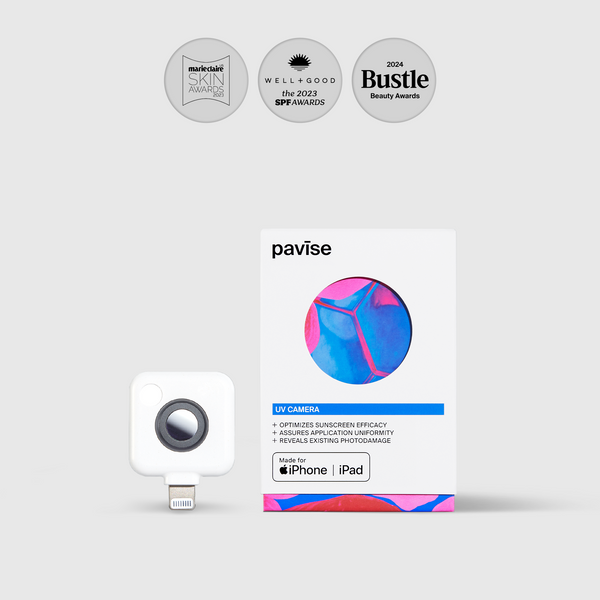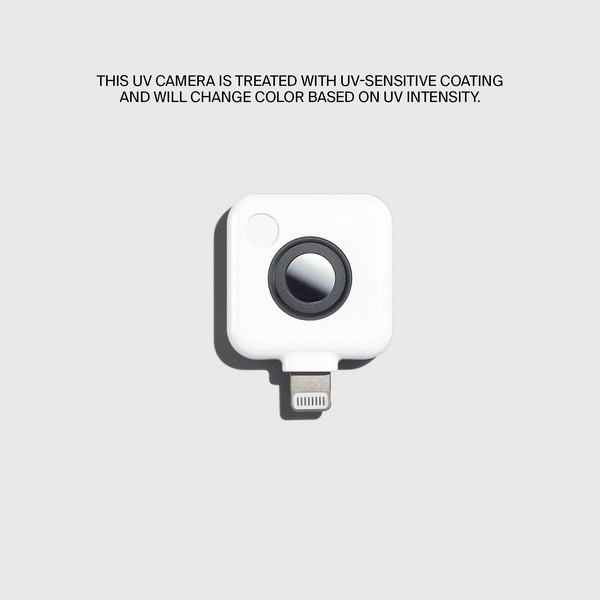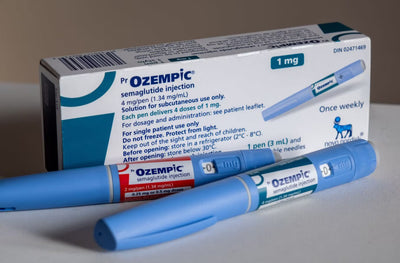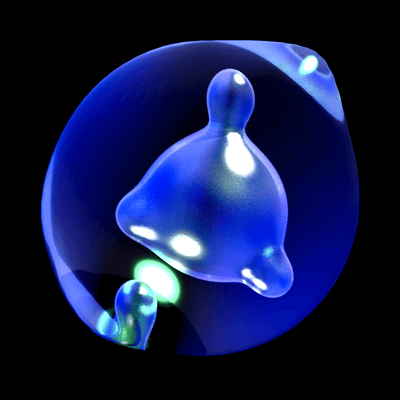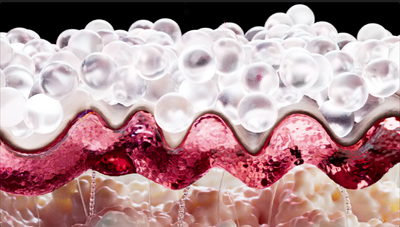SKINCARE FOR THE STRESSED OUT

What you need to know
Chronic psychological stress accelerates skin aging by triggering hormonal changes that lead to DNA damage, reduced collagen production, and impaired skin barrier function. The biological impact of elevated cortisol affects everything from hydration to wound healing, making the skin more vulnerable over time.
Addressing stress through mental wellness practices and using targeted skincare ingredients like DiamondCore® can help restore skin health, promote collagen synthesis, and support long-term resilience.
Daily stress doesn’t just weigh on your mind, it leaves its mark on your skin. The effects of chronic psychological stress go far beyond the occasional breakout or dull complexion. Over time, stress hormones can trigger cellular changes that accelerate visible signs of aging, including fine lines, dryness, and slower wound healing. These internal shifts weaken the skin’s structure and barrier function, making it more vulnerable to damage. Understanding how stress impacts skin health at a deeper biological level is the first step toward protecting and restoring it, both through mindful self-care and targeted skincare solutions.
How does stress cause skin aging?
When the body experiences psychological stress, the nervous system is activated into a fight or flight response that releases many different types of hormones that all have impact on different bodily functions1. Some of these hormones include epinephrine, norepinephrine, and cortisol all of which can have negative impacts on the skin when they are overexpressed due to chronic psychological stress. Increasing hormone levels can lead to DNA damage, oxidative stress, skin barrier damage, and wound healing impairment1-3.
Studies have shown that increased cortisol and epinephrine levels lead to DNA damage that causes cellular dysfunction3. DNA damage can be anything ranging from point mutations in the genetic sequence to telomere shortening2,4. Telomeres are long noncoding sequences at the end of a DNA strand that prevent any information from getting lost during DNA replication. Shortening of these strands limits how much cells can replicate and can ultimately lead to cellular senescence, the stage in which cells do not die, but cease replication2. Cellular senescence is one of the main causes of skin aging because senescent cells have different protein regulations, often resulting in skin barrier damage.
Case studies have also shown that individuals with moderate psychological stress have increased fine lines and texture in their skin as well as increased transepidermal water loss (TEWL)3. These symptoms suggest that the skin barrier is compromised in chronically stressed patients and that the extracellular matrix (ECM) components are also affected3. The epidermis is responsible for maintaining skin hydration and protecting the body. When there is an increase in water loss, it means that the epidermis is more permeable which can lead to dry, flaky skin. Additionally, an increase in fine lines and wrinkling indicates that the ECM is compromised as well. Skin elasticity and thickness is maintained by ECM components such as collagen and elastin. Studies have shown that there is significant downregulation of collagen in the presence of excess cortisol3.

Extracellular matrix gene expression on normal human fibroblasts treated with cortisol at 0.1 and 1 μM. Data provided by Pujos et al.
There is also a decreased wound healing ability due to chronic stress. The wound healing process involves multiple phases: inflammation, proliferation, and remodeling. All of these phases are affected by high cortisol levels. In the inflammatory phase, it has been found that important inflammatory markers are downregulated in the presence of excess cortisol, meaning there is less inflammation and therefore no signaling to start the repair process2. One of the most important phases is the proliferation phase, the one in which new cells are made to replace the old, damaged cells. When cortisol levels are high, skin cell proliferation decreases. Research has shown that cell migration under high cortisol levels decreases by almost 20%3. This means that under high levels of psychological stress, the skin takes longer to begin the wound healing process and to undergo the wound healing process as well.

Normal Human Keratinocytes and Normal Human Fibroblasts migration under Cortisol‐induced stress versus Non‐stressed cells. Data provided by Pujos et al.
How can aging caused by stress be treated?
Thankfully, skin aging caused by chronic stress is extremely treatable on your own. There are multiple ways to combat this, with the first being to take time to take care of your mental health. Remaining in a constant state of stress is a struggle that many people battle, and it is important to put yourself first. Set aside a time in the day to do something that relaxes you such as reading or exercising. Exercise has been proven to be an excellent stress reliever, so not only are you taking care of your body, but you are also taking care of your mind and skin in doing so.
If you still find yourself struggling with skin aging symptoms, it is also important to treat the skin as well. A proper skincare routine ensures prevention of skin aging symptoms. Good products are ones that can promote collagen synthesis to combat wrinkling, protect the epidermal barrier to promote hydration, and reduce oxidative stress by acting as antioxidant. Pavise Dynamic Age Defense and Bioadaptive Stress Repair do just that. The key ingredient in both, DiamondCore®, has been proven to promote collagen synthesis, act as an antioxidant against damaging free radicals, and increase wound healing ability5. Studies show that collagen production when treated with DiamondCore® increases by almost 20% and cell proliferation during wound healing is almost doubled in comparison to other antiaging treatments5.
During times of stress, skincare might be the last thing on your mind, but with DiamondCore® everything can happen in one step. Selfcare is one of the best ways to ease stress anxiety, so why make it difficult? Investing in a routine that supports both your skin and your mental well-being not only helps reverse the visible effects of stress but also reinforces the importance of prioritizing yourself. Aging is natural, but how you show up for yourself through it makes all the difference.
References
By Elia Rodriguez - Updated September 24, 2025
